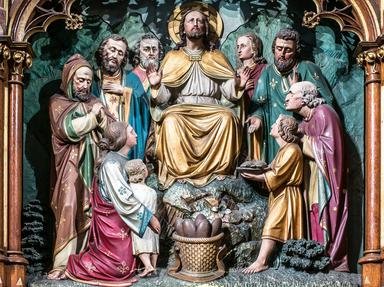
I Have a Crush on You! Trivia Quiz
Match the Old Testament person with the person that he/she possibly had a crush on. Note: some of these weren't truly married to each other; some were merely attracted to the person or wanted to marry him/her.
A matching quiz
by Ceduh.
Estimated time: 3 mins.